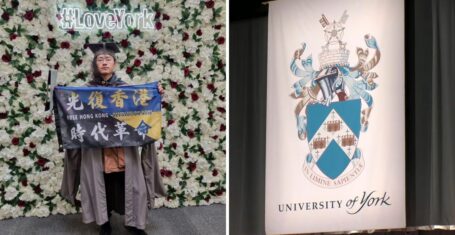
York’s Vice-Chancellor is ‘disappointed’ with the possibility of strike action
He says the uni will ‘do all that it can to minimise any disruption’
The University of York's Vice-Chancellor has responded to the possibility of industrial strike action, saying it is "disappointing".
In an email sent to all students earlier today the Vice-Chancellor, Professor Charlie Jeffery said it's "disappointing that the university may now face potential further industrial action at York".
However, Professor Jeffery assured students that their education continues to be the University's main priority. He said if action does take place the University will "do all that it can to minimise any disruption to teaching, learning and research".

The email Professor Jeffery sent to students earlier today.
He further stated the University of York is committed to working with its local UCU branch and Universities UK (UUK), which is the main organisation that represents all UK universities at a national level, to produce a resolution to the initial dispute.
Professor Jeffery also said pay negotiations are on a national level therefore issues cannot be resolved just at the University of York, it has to be a national agreement.
Two years ago lecturers and members of the University and College Union went on strike for two weeks causing major disruption to the University academic timetable.
Earlier this week members of University and College Union (UCU), including University of York members, voted to back strike action and action a short of a strike in ballots over the pension scheme and lecturers pay.
The ballot is valid for six months, meaning that academics can take industrial action at any point between now and Spring 2020, but by law must give two weeks' notice before striking.
Why are lecturers potentially striking this time around?
The reason for the strike last time was the Universities UK's (UUK) proposed to end the defined benefit element of the Universities Superannuation Scheme (USS) pension scheme.
According to UCU, ending the scheme would make the average lecturer £10,000 a year worse off in their retirement than under the current set-up. The union was successful in forcing employers to drop the change in pension plans.
However, the current dispute is over UCU members being forced to make increased payments to maintain the same level of benefits – now paying 9.6 per cent of salary to scheme rather than the eight per cent they paid last year, meaning once again lecturers will be worse off.









































